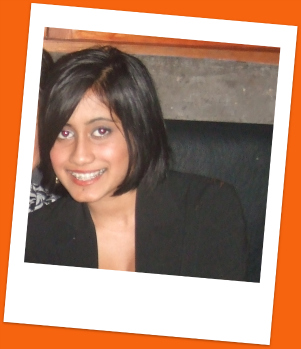"Our voices are not heard – a minority within a minority"
March 26 Fears that New Zealanders are becoming complacent about the spread of the AIDS epidemic have prompted a challenge from the country’s former premier. Commonwealth Correspondent Alisha Lewis, 20, reports on the task facing women and girls especially.
Fears that New Zealanders are becoming complacent about the spread of the AIDS epidemic have prompted a challenge from the country’s former premier. Commonwealth Correspondent Alisha Lewis, 20, reports on the task facing women and girls especially.
Former New Zealand Prime Minister and UNDP Administrator Helen Clark has urged the country to become the first in the world to wipe out the spread and stigma of AIDS.
Clark, on a joint mission earlier this month to raise awareness of the epidemic with UN AIDS Executive Director Michel Sidibe, presented the challenge at the opening of a new community house in Auckland for women affected with the disease.
Having recently told TV ONE’s Breakfast that New Zealanders have become complacent about the epidemic, Clark says Kiwis should remain aware. “You can never relax your guard when you have a deadly disease,” she says.
“You have to constantly be active in the safe sex message… I think this visit has been very timely in raising the awareness again that this is a public health challenge in our country as in all countries.”
Sidibe, whose vision it is to achieve zero new HIV infections, eliminate discrimination and prevent Aids-related deaths in all countries, stresses a vital need to combat the disease amongst women. “We are not winning,” he says. “It’s time to stop this unnecessary infection among girls and women.”
Telling horror stories of rape victims and a young girl who kept asking “why me?”, Sidibe says that if Kiwis take up the challenge to combat AIDS in New Zealand, they will be helping win a much bigger battle. “[We must] continue to fight for this cause, because I know millions of them are out there… and we need to fight for them.”
Speaking on the eve of International Women’s Day, both leaders praised Positive Women Inc – a support organisation for women and families living with HIV and AIDS – for its success in creating the community house.
“I think having a women’s space is very important,” says Clark. “[It is a place] where women can come, they can feel at home, they can feel very comfortable and get the advice and support they need.”
Positive Women Inc’s National Coordinator Jane Bruning says the need for the space arose due to New Zealand’s relatively low prevalence of HIV, which is leaving affected women feeling alone in their disease.
“Often, our voices are not heard. And that leaves us as a minority within a minority. And that leaves us very, very isolated… and so moving into this house and having it officially opened is actually a huge step for us.”
Aside from providing hands on support and services to affected women, Positive Women Inc also holds seminars, training events and school talks to educate people and eliminate the separation of living with HIV or AIDS.
Sidibe says the opening of the community house in the Mt Eden, is a move towards achieving the challenge put forward to the whole country. “Positive change is possible and Positive Women will contribute to the construction of society in a very positive way.”
…………………………………………………………………………………………………………………
About me:
“I’m a journalism student from Auckland, New Zealand. Originally from India, my family moved to New Zealand when I was four years old. I love writing – both creative and transactional – as well as reading, theatre, travelling and dancing.
“Aside from studying, I work as an intern for ONE News – at TVNZ, our national broadcaster – and as sub-editor for my university magazine. I hope to enter into journalism, ultimately working for established editorial publications within New Zealand or overseas.”
…………………………………………………………………………………………………………………
Opinions expressed in this article are those of the author and do not necessarily represent the views of the Commonwealth Youth Programme. Articles are published in a spirit of dialogue, respect and understanding. If you disagree, why not submit a response?
To learn more about becoming a Commonwealth Correspondent please visit: http://www.yourcommonwealth.org/submit-articles/commonwealthcorrespondents/
…………………………………………………………………………………………………………………




